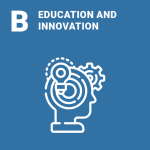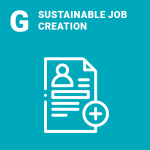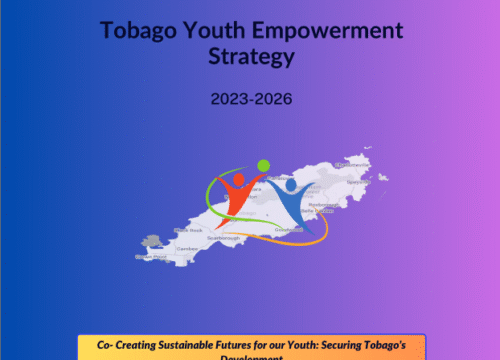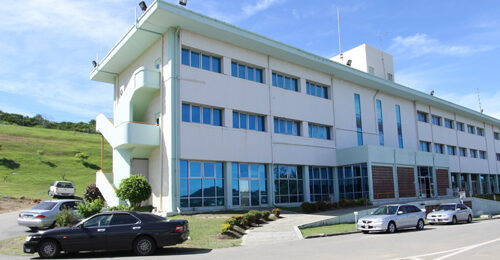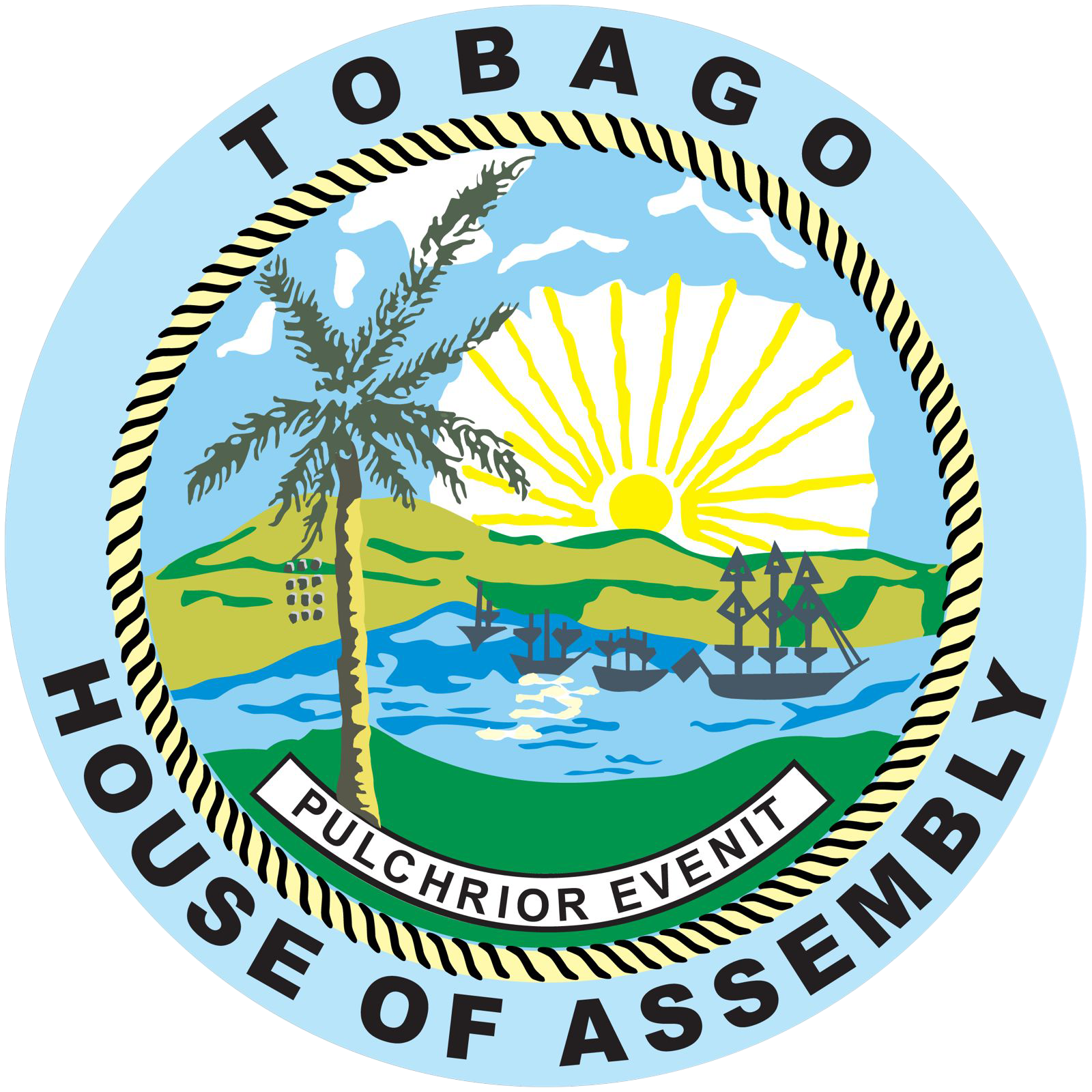DEVELOPMENT AGENDA PRIORITY G: Sustainable and meaningful Job creation.
About the
PriorityPerformance
benchmarksMajor
ConcernsSelected
Focus
AreasTargets &
IndicatorsPolicies, Plans
& ProgrammesProjects
PriorityPerformance
benchmarksMajor
ConcernsSelected
Focus
AreasTargets &
IndicatorsPolicies, Plans
& ProgrammesProjects
About priority G
- A sustainable, meaningful job is defined as an existing or future public or private sector jobs that meet a minimum living wage threshold and provide continuous employment for at least five years.
- Meaningful is defined by the income a job provides while sustainable is defined by period over which this income is generated.
- The Tobago House of Assembly will establish the institutional framework for collecting and analyzing labour market trends to identify which sectors are most likely to generate sustainable and meaningful jobs.
- An integrated approach will promote the development of sustainable and meaningful job opportunities by connecting post-secondary education, skill development, and entrepreneurship to the needs of the labour market.
- Integration will foster a more inclusive and sustainable job market by addressing immediate and future employment needs and long-term development priorities.
Primary performance benchmark: Priority G
- Benchmark: Increase the monthly minimum living wage (indexed to the cost of living) for public and private sector workers to at least monthly median household income by 2035.
-
Indicator of progress/success: The minimum living wage year-over-year from 2025 to 2045.
-
Benchmark country: New Zealand.
Major concerns: Priority G.
| Concerns | Problem Statements |
| Living wage threshold | a. No formal policy commitment on a living wage threshold. |
| Low wage workers | b. High levels of low-wage workers |
| High-skilled labour | c. Low levels of highly skilled workers. |
| Private sector jobs | d. Insufficient supply of high-wage private sector jobs. |
1.0 Selected Focus Areas Priority I?
The Tobago House of Assembly will establish the Department of Labour Statistics (DLS). The department will focus on data-driven labour market studies. All Divisions will utilize the data to prioritize job creation using several targeted initiatives. Immediately, the THA will focus on the following areas:
- Job Creation through Capital Investment:
- Capital spending: Align job creation with capital expenditures (physical, human, social, cultural, innovation/technological) related to the development agenda priorities. This will ensure that at least 10% of projected capital expenditures focus on areas that create meaningful jobs.
- Job readiness: Support existing and new job readiness programs to meet the skills requirements of the emerging Tobago economy.
- 5,000 Jobs Initiative: Launch the Tobago 5,000 Jobs initiative to create meaningful and sustainable employment opportunities for Tobagonians aged 18-35 over five years, from 2025 to 2030. The program will focus on the following key areas:
- Clean energy transition
- Digital transformation and
- Small and large-scale physical infrastructure, real estate development, and management
- Clean Energy Transition:
- Clean energy incentives: Incentivize businesses to transition to clean energy sources, including the installation of solar panels and solar home systems. This will generate jobs in manufacturing, installation, and maintenance.
- Energy-efficient public buildings: Transition all public buildings in Tobago to renewable energy use, including energy-efficient cooling systems, solar panels and energy-efficient light bulbs. This will create jobs in installation and maintenance.
- Digital Transformation:
- Tobago Online: Launch the Tobago Online program to initiate the transition of the Tobago public service, all government departments, private businesses, and homes from analog to digital operations. This will create jobs in both the public and private sectors for Digital Content Creators, Database Analysts, Digital Product Managers, UX and UI Designers and Digital Transformation Specialists. A significant number of jobs will be created to convert existing analogue data to digital data. E-IDCOT will execute this program on behalf of the Office of the Chief Secretary.
- Physical Infrastructure:
- 1000 Homes Initiatives: Launch the 1000 Homes initiative, which focuses on delivering service lots and complete dwelling units. The program will be phased over five years and create jobs in home construction and residential real estate. The Division of Settlements, Public Utilities, and Rural Development will implement the initiative.
- Tourism Amenities Upgrade: Establish the initiative to enhance all tourism amenities throughout Tobago, including passive and active recreation sites, forts, and nature trails. This will create jobs in landscape design and construction, general construction, facility maintenance, customer services, and tour guiding. E-IDCOT will execute this initiative on behalf of the Division of Tourism, Culture, Antiquities, and Transportation.
- Tobago Heritage Village and Living Museum: Design and construct the Tobago Heritage Village and Living Museum. This heritage park project will showcase Tobago’s rich cultural, built, and culinary heritage using a theme park model. The project will create jobs during the construction phase and sustain the park's operation, including roles in hospitality and the performing arts. E-IDCOT will execute this project on behalf of the Division of Tourism, Culture, Antiquities, and Transportation.
- Build Tobago: Launch the Build Tobago initiative, which will focus on upgrading primary and secondary roads and allied infrastructure, community amenities, including public buildings such as community centers, schools, and recreation grounds. This will create jobs for small-scale contractors. The Division of Infrastructure, Quarries, and Urban Development will execute this initiative.
MAIN REFERENCE INFORMATION
- Big Ideas for Job Creation: A policy brief highlighting job creation initiatives
- Generative AI and Jobs in Latin America and the Caribbean: Is the Digital Divide a Buffer or Bottleneck?
- Jobs in a net-zero emissions future in Latin America and the Caribbean
- Just Transition Draft Policy for an Equitable Low-Carbon Future for Trinidad and Tobago
- Renewable energy and job creation: Economic benefits of the green transition
- Driving Digital Transformation In the Eastern Caribbean
Targets and Indicators of Progress/Success
Target-G-1
Establish a Department of Labour Statistics, DLS within the Division of Finance and the Economy by 2026.
Indicator-G-1
The Executive Council of the THA approves the establishment of the DLS, and the Department of Labour Statistics is operationalized by 2026.
Target-G-2
Achieve at least a 25% increase in the number of jobs created across key private sectors by 2035 and at least a 35% increase by 2045.
Indicator-G-2
Percentage of private sector jobs year-over-year.
Target-G-3
Achieve at least a 15% increase in the number of public sector jobs by 2035 and at least a 20% increase by 2045.
Indicator-G-3
Percentage of public sector jobs year-over-year
Target-G-4
Increase youth employment in the public and private sectors to at least 15% by 2035 and by at least 20% by 2035.
Indicator-G-4
Youth unemployment in the public and private sectors year-over-year.
Target-G-5
Invest an appropriate % equivalent of GDP in job creation by 2035 and an appropriate % equivalent of GDP by 2045.
Indicator-G-5
Percentage of GDP equivalent invested in job creation year-over-year.

